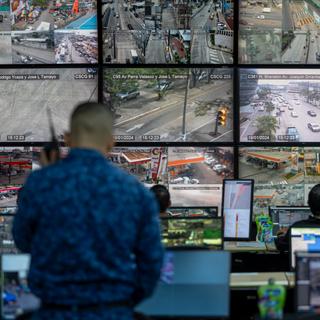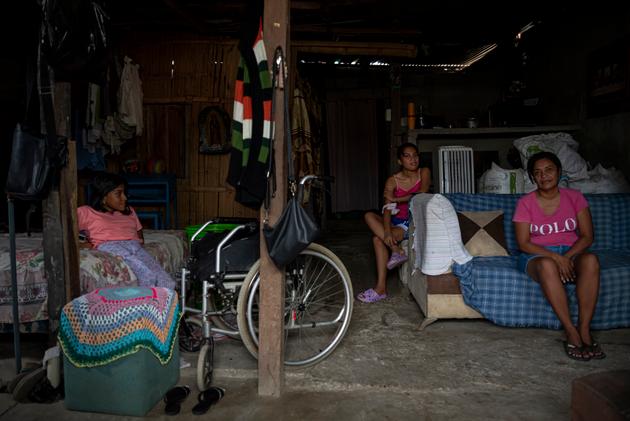


Ecuador's President Noboa adopts tough stance over surging gang violence
FeatureIn Guayaquil, the country's leading cocaine export port, locals are traumatized by the surge in violence triggered by the mutiny of criminal gangs in the country's prisons. They applaud the army's deployment.
Josefa Quinones and her two daughters live in a shack made from sheet metal and cinderblocks in the San Francisco district, overlooking the prison complex in the Ecuadorian port of Guayaquil. A dozen military trucks had been parked in front of the Litoral Penitentiary entrance since dawn. Snipers were stationed on one of the buildings' roofs. "This morning, we were once again awakened by two explosions. Yesterday, it was by a prolonged gunfire exchange just below our home. I'm scared all the time," said Quinones, who is vice president of the neighborhood council. She added: "In Guayaquil, everyone is afraid all the time." Ecuador's unprecedented security crisis began in the country's prisons. It has become entrenched in Guayaquil.

The humid, sprawling city stretches north of the Guayas River estuary on the Pacific coast. At the water's edge, gigantic cranes and mountains of colored containers attest to the dynamism of the port. It is Latin America's third-largest port and its primary cocaine hub. Ecuador does not produce cocaine but extensively exports it from neighboring Colombia and Peru. Gang rivalries are intense. Almost a third of the 7,600 homicides committed in the country last year took place in the port of Guayaquil, home to 2.6 million of Ecuador's 18 million inhabitants.
At noon, President Daniel Noboa left the prefecture, where a security council had been held. "Long live Noboa," shouted a man in a red jacket. "Go ahead, president, kill all the bandits!" The cheer was echoed by the few passers-by scattered among the police officers providing the president's security. In office for less than two months, the young head of state has declared war on the criminal gangs that plague the country. In Guayaquil, he is applauded. "I didn't vote for Noboa, who seemed like a useless rich kid," said the man in red. "But, if you'll excuse the expression, he's a president with balls." Noboa is 36 years old. He is the son of one of the country's richest men.
On January 8, a gang leader's escape triggered rebellions in the country's prisons as well as violent unrest. The inmates took more than 150 prison guards hostage – they were released in the following days. In Guayaquil, heavily armed men invaded a TV news set as it was broadcasting the news. "Nobody knows who ordered the operation, or why," said Juan Manuel Yepez, editor of the daily Primicias. "But the psychological impact of the assault, broadcast live, has been very pronounced."
Mafia does as it pleases
The next day, Noboa decreed that the country was in "internal armed conflict" and declared a two-month state of emergency. He instructed the army to regain control of the prisons and restore order to the country. The Choneros, Lobos, Tiguerones, Lagartos and 18 other criminal organizations were labeled "terrorists" and declared "military objectives."
You have 65% of this article left to read. The rest is for subscribers only.
